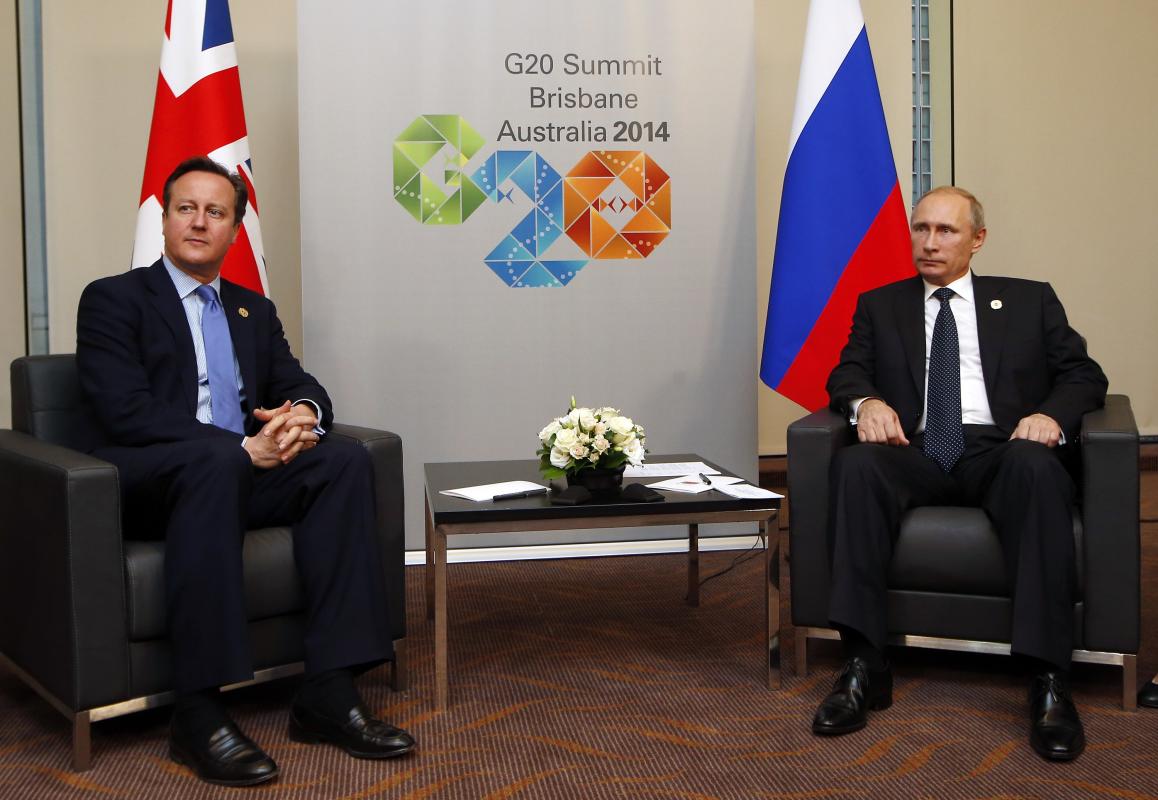Expecting The Unexpected
"We have to be clear what we are dealing with here is a large state bullying a smaller state. We have seen the consequences of that in the past and we should learn the lessons of history and make sure we do not let it happen again.
British Prime Minister David Cameron

It is as though Vladimir Putin's reckless, taunting behaviour, having elicited censure, but no real penalties aside from sanctions which have hastened Russia's slide into recession, he has little to lose and much to gain. What he gains is approval from the Russian voter, the majority of Russians whose understanding of world events is shaped by propaganda from State-sanctioned media.
Vladimir Putin has the idea that he will rule Russia as its benevolent autocrat for as long as he wishes, assuring Russians that their president is a strong man in the tradition of Joseph Stalin, the antithesis of the traitorous Mikhail Gorbachev whose glasnost led to the enfeeblement, then dissolution of the Soviet Union, Russia's glory days of empire.
Those few former Soviet satellites that have succeeded in enriching themselves in the democratic capitalist mould hold out appeal for Ukraine, to join them through membership in NATO and with the European Union. Mr. Putin would far prefer success to elude them all, as it has done a good percentage of former Soviet dependents, Russia included.
Mr. Putin, in fact, is having a good time, quite enjoying poking NATO, the EU, eastern Europe, North America and Oceania in the eye now and again, keeping them irritably on their mettle, never quite knowing when this latter-day Scarlet Pimpernel gone bad will next strike. Russian planes buzzing Canadian and American warships, incursions over the Arctic, that kind of fun.
Threatening to cut off gas to energy-dependent countries, unconcerned that in so doing Russia is also cutting off its economic lifelines, leaving Germany and the Netherlands, let alone Ukraine, concerned about shivering through the dark winter months. The release of a report called Dangerous Brinkmanship by the European Leadership Network think-tank identifying 40 close military encounters, emphasized the potential for "serious incidents ... bringing a higher risk of escalation".
Russia is clearly testing NATO defences, and Mr. Putin is clearly taking great delight in demonstrating his capability to seem to emasculate the United States faced with Russia's puckish delight in causing great consternation to world powers. Since he envisions himself as one of those greater world powers, he obviously feels entitled to spreading a little panic about now and again.
Dr. Braun describes him as a "tiny man in elevator shoes", standing pugnaciously astride the world as though he is instead a colossus, in control and powerful. And Prof. Braun points out Mr. Putin's fear that Ukraine might become a successful democracy enrolled in a greater Europe, leaving Russia in the dust of obscure failure. "It would undermine his legitimacy", explained Prof. Braun.
It is Mr. Putin's good fortune to come across the happenstance of an American President who appears confused and irresolute in the face of Russian mischief and dangerous manipulation. President Putin imagines his image to be a strong one of action and determination, as opposed to President Obama's unfortunate one of irresolution and failure.
"We should not confuse political luck with political acuity", Prof. Braun cautions. "This is where the comical blends with the dangerous."
Labels: Crimea, EU, Intervention, NATO, Russia, Ukraine, United States

<< Home